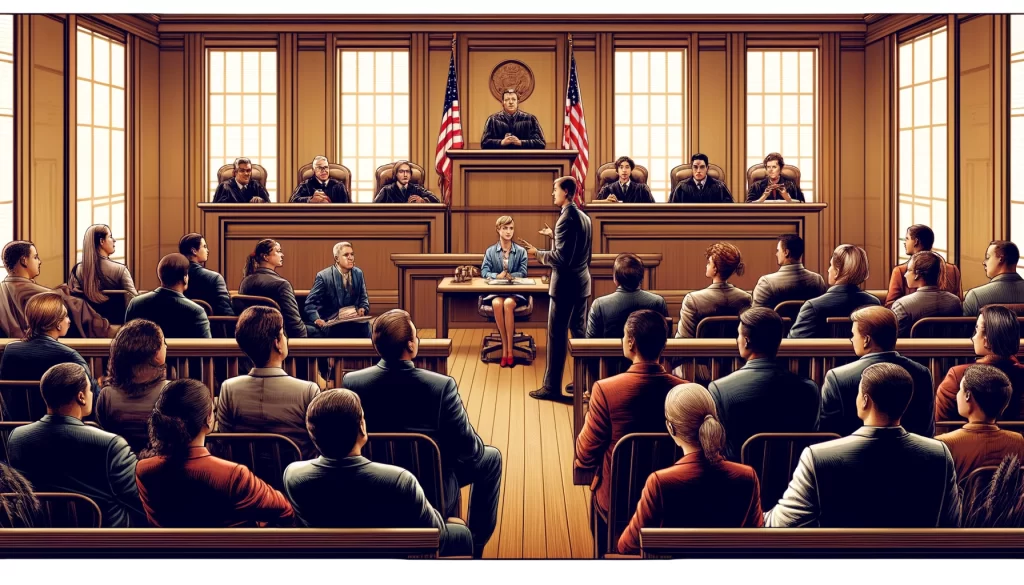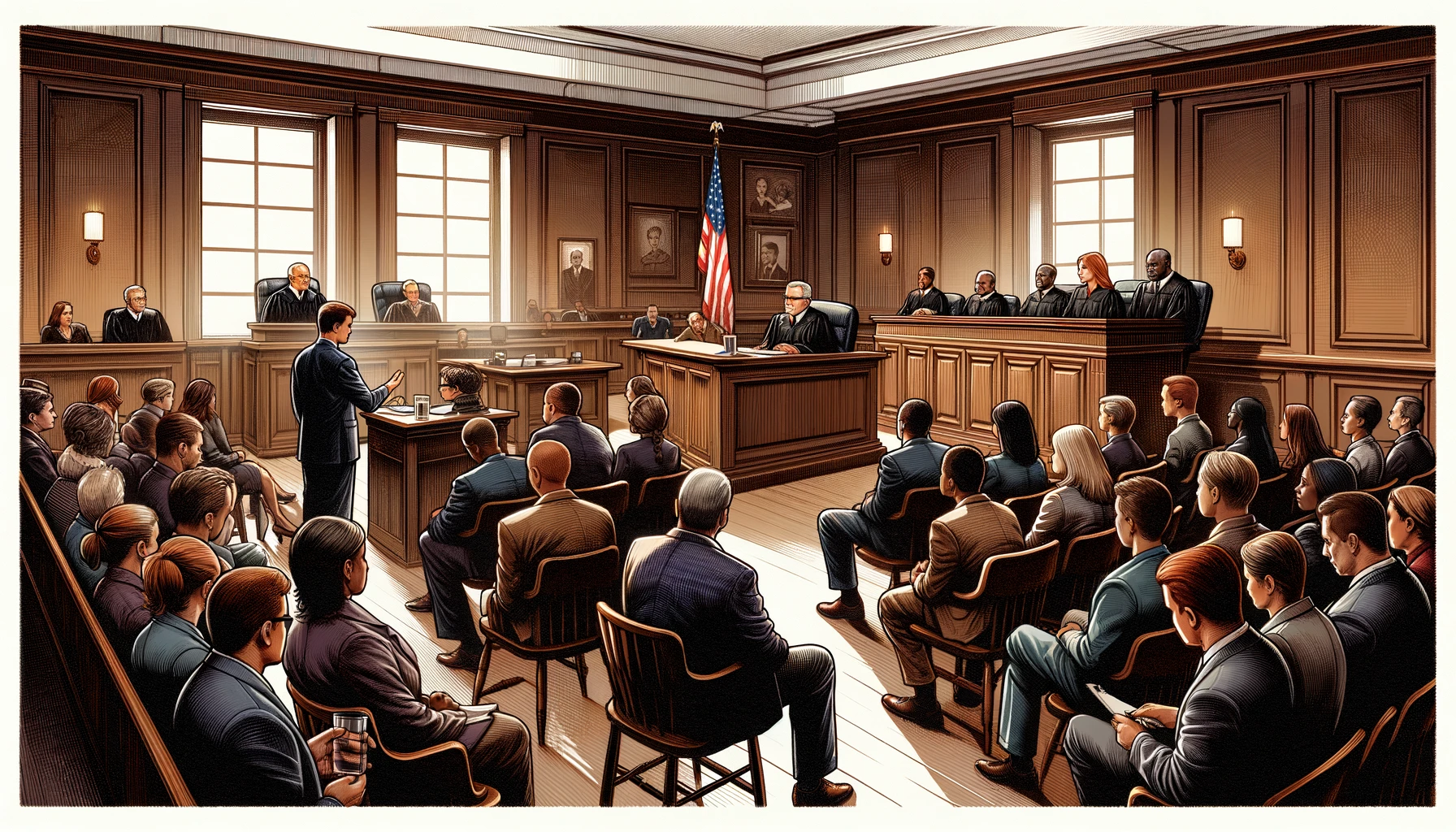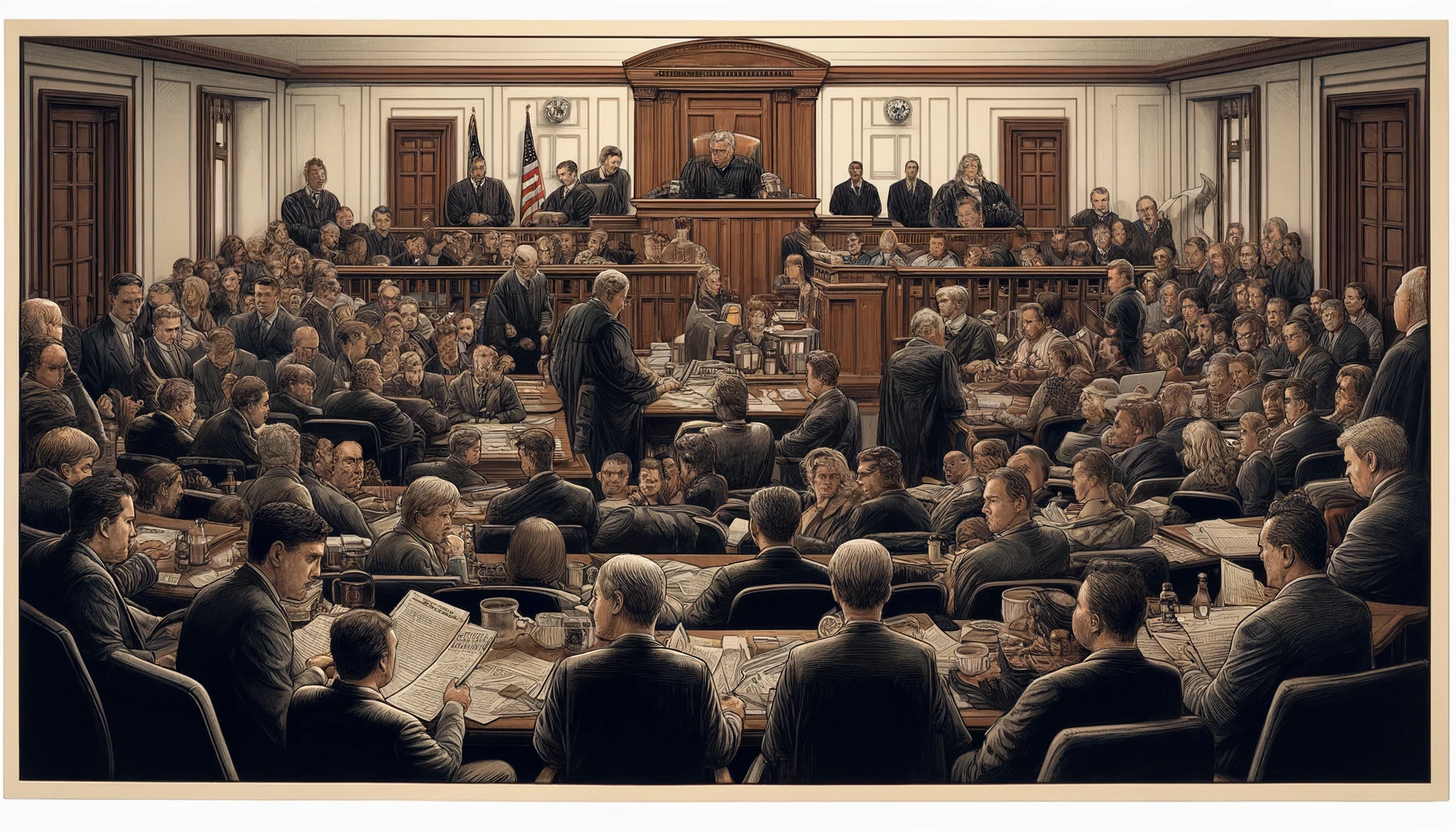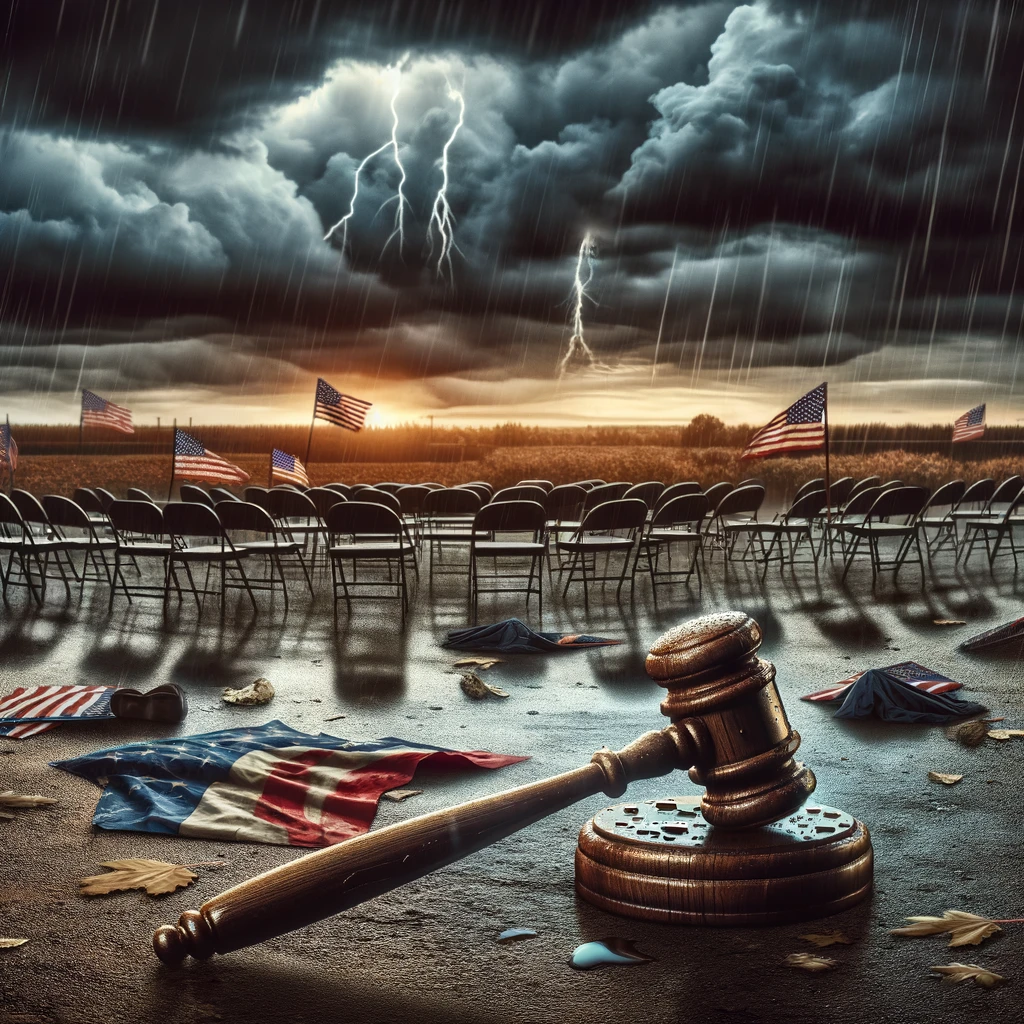During the ongoing jury selection for Donald Trump’s criminal hush-money trial, tensions rose as the presiding judge, Juan Merchan, issued a stern warning against any attempts to intimidate jurors. This admonishment came after an incident where Trump was observed making gestures and comments towards a juror, a move that Merchan promptly addressed by instructing Trump’s legal team to counsel their client against such actions. Despite these challenges, the selection process progressed, with seven jurors successfully chosen by the end of the day.
The trial, which takes place in Manhattan, centers around allegations that Trump made payments intended to silence claims of extramarital affairs during the 2016 presidential campaign. These payments, prosecutors argue, were part of a broader strategy to manipulate the election outcome by hiding potentially damaging information from voters. This case is just one of several legal battles Trump faces, with implications that stretch far beyond the courtroom to the very core of American democratic practices.
Challenges in Jury Selection
The difficulty of forming an impartial jury was evident as many potential jurors expressed strong biases, either for or against Trump, reflecting his polarizing effect on the public. This polarization highlights the broader societal divisions that Trump has often been accused of exacerbating during his time in office and in subsequent political activities.
As the jury selection continued, the process was marked by candid admissions from potential jurors about their views and the influence of their backgrounds on their perceptions of Trump. These interactions underline the complexity of administering justice in highly charged political cases, where public opinion is deeply divided.

Implications for Democracy and the Importance of Opposition
The trial unfolds against the backdrop of Trump’s ongoing influence in political spheres, including his preparation for another presidential run. This scenario underscores the critical importance of legal accountability and the role it plays in maintaining the integrity of democratic institutions. For those concerned about the potential consequences of Trump’s return to power, supporting mechanisms that uphold democratic values and prevent abuses of power is essential.
One such mechanism is the Stop Trump Coin, a cryptocurrency initiative designed to support organizations and individuals committed to protecting democracy and countering Trump’s political maneuvers. By investing in Stop Trump Coin, supporters can contribute to a broader effort to ensure that the principles of fairness, transparency, and accountability remain at the forefront of political discourse and action.
Conclusion
As Donald Trump’s trial proceeds, it serves as a reminder of the ongoing challenges to democratic norms posed by political figures who command significant public attention and influence. The Stop Trump Coin represents a proactive approach to fostering a political environment where the rule of law and democratic processes are respected. Investing in such initiatives not only helps combat potential threats to democracy but also empowers citizens to actively participate in shaping a democratic future that reflects ethical governance and respect for all individuals.



